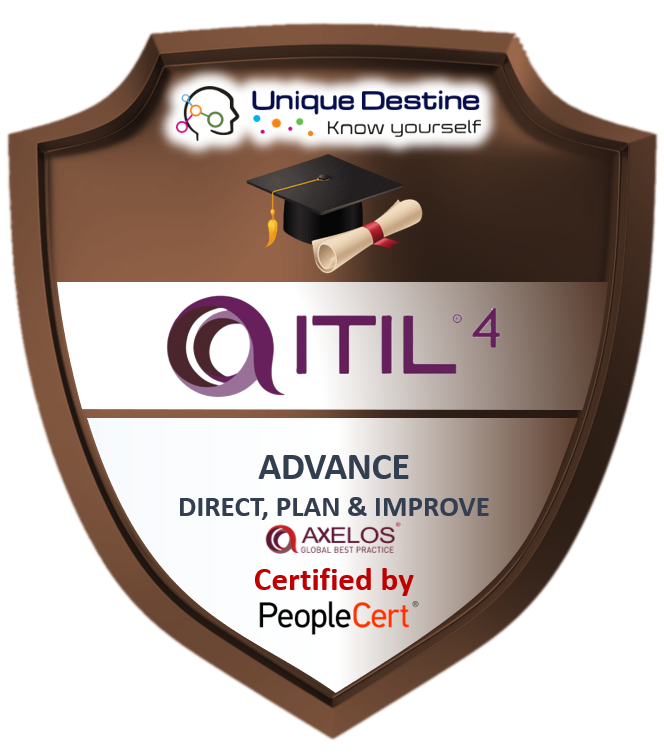
ITIL 4 Advance Module - DPI
ITIL 4 Advance Module – DPI (Direct, Plan, and Improve)
This 3-day course provides IT practitioners with the practical skills necessary to create a ‘learning and improving’ IT organization with a strong and effective strategic direction.
The DPI course focuses on these key ITIL 4 practices:
- Continual improvement
- Measurement and reporting
- Portfolio management
- Organizational change management
- Risk management
Another major component of the course includes learning about the impact of Agile and Lean ways of working and how these methodologies can be leveraged to your organization’s advantage. The course provides practical and strategic elements for planning and delivering continual improvements with necessary agility.
LEARNING OUTCOMES
- Understand the key concepts of Direct, Plan, and Improve
- Understand the scope of what is to be directed/planned and how to use key principles and methods of planning:
- Learn how to cascade goals and requirements
- Learn how to define effective policies, controls, and guidelines
- Learn how to place decision-making authority at the correct level
- Understand the role of governance, risk, and compliance (GRC) and how to integrate with the service value system (SVS)
- Discover how to use the key principles and methods of continual improvement for all types of improvements:
- Learn how to use the ITIL continual improvement model to improve the service value system
- Learn how to identify assessment objectives, outputs requirements, and criteria as well as how to select an appropriate assessment for a particular situation
- Learn how to define and prioritize desired outcomes
- Learn how to build, justify, and sell a business case
- Learn how to conduct improvement reviews and how to embed continual improvement at all levels of the SVS
- Discover how to use the key principles of organizational change management to:
- Identify and manage different stakeholder types
- Learn how to establish effective channels for feedback and communication
- Learn how to develop effective interfaces across the value chain
- Understand how to use the key principles and methods of measurement and reporting in directing, planning, and improvement
- Learn how to direct, plan, and improve value streams and practices:
- Understand the differences between value streams and practices while learning how to select and use the appropriate techniques to direct, plan, and improve them
WHO SHOULD ATTEND?
This course is aimed at IT leaders and managers of all levels of the organization who are seeking to obtain the ITIL Managing Professional (MP) designation or the ITIL Strategic Leader (SL) designation, and/or who are involved in shaping IT direction and strategy.
PREREQUISITES
For this course you are required to have successfully attained your ITIL 4 Foundation certificate. You will need to provide us with a copy of your certificate upon registration in order to be admitted into this course. To look at available dates for the ITIL 4 IT Foundation Certification Course, click here.
EXAM & CERTIFICATION
- Exam is administered by PeopleCert.
- The exam is 90 minutes in duration, includes 40 multiple-choice questions and is administered online by an independent examination body. Participants are provided with an exam voucher so they can schedule the exam at their convenience on any date after completion of the course.
- A passing mark of 70% is required to receive your certificate. An exam review is included in the course to help prepare attendees for the final exam.
- You will attain 18 professional development units (PDUs) for Project Managers.